By Hillary Boucher, Community Manager at TheCR Network.
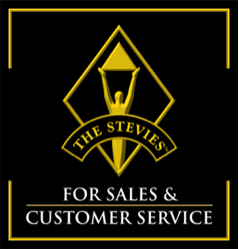 As community manager of TheCR Network – our peer network of social business and community leaders – one of the things I love is celebrating our members’ successes with them. We know the many challenges our members face as they work to implement community models into their organizations’ infrastructure and it’s great when there is validation for all of their hard work. In this case, we were thrilled to hear that one of our members, Ian White of Rackspace, and his community team was awarded a silver award for Best Use of Technology in Customer Service at the eighth annual Stevie Awards for Sales & Customer Service. I caught up with Ian to get more details.
As community manager of TheCR Network – our peer network of social business and community leaders – one of the things I love is celebrating our members’ successes with them. We know the many challenges our members face as they work to implement community models into their organizations’ infrastructure and it’s great when there is validation for all of their hard work. In this case, we were thrilled to hear that one of our members, Ian White of Rackspace, and his community team was awarded a silver award for Best Use of Technology in Customer Service at the eighth annual Stevie Awards for Sales & Customer Service. I caught up with Ian to get more details.
Hillary: Congrats on your big award! Tell us more about the award and why you and your team was chosen to receive it.
Ian: The Stevie Awards are considered the Oscars of the business world, and the Sales & Customer Service awards honor companies across sales, contact centers and customer service. More than 400 nominated customer service and sales executives from the US and several other countries attended.
My team, the Rackspace Community Team was honored for its contribution towards providing Fanatical Support®. One of the tenants of Fanatical Support is proactively serving our customers – providing solutions to problems before customers know they have them and before they even have to ask. The team took home a silver award for Best Use of Technology in Customer Service – Computer Services at the eighth annual Stevie Awards for Sales & Customer Service.
Hillary: Sounds like your customers enjoy this more modern form of support – can you share some feedback you’ve received from users on the community support model?”
Ian: Our customers are primarily business owners, and they’ve told us that they appreciate the ability to have a library of solutions at their fingertips that is accessible when they want it. They are delighted at the speed and quality of our specialists’ responses in the Community. Additionally, our customers enjoy the access that the Community gives them to have transparent communication with Rackspace leadership about big issues such as security in the cloud.
Hillary: We know it’s a pretty big deal for a community team to win this over traditional support teams. Can you share a little background about your community and how you ended up at this point of achievement?
Ian: We started the Community on February 4th, 2013 with the goal of expanding our Fanatical Support to a digital audience that prefers self-service. In the current market, many people prefer to google an answer to a question rather than speak to a human, so expanding that concept to include support for Rackspace customers was a key objective. It was also important that our Community provide access to specialists in a wide variety of technologies that can address specific concerns. After one question has been answered, it can be viewed and provide insight to other customers who are experiencing similar problems. This allows us to create a comprehensive support experience for our customers with information that is constantly evolving and growing.
Hillary: Thinking back at the process of standing this community up, what was a major obstacle and how did you overcome it?
Ian: The biggest challenge out of the gate was trying to find content that would be valuable to our audience. It’s something we continually debate as a team, and we challenge each other to find the best content, through the right channel, for the right member. Fortunately our customers are very open about what they want, so we have the advantage of learning from them and adapting our processes along the way.
Hillary: What’s next for your community?
Ian: In 2014, our focus is targeted at expanding the self-service options for our customers through a redesigned Community and a unified customer experience for all of our digital portals. The concept of proactive Fanatical Support will continue to inspire any and all projects moving forward. I’m really excited to see how customers react to the updates we are planning, and I hope that they love it. If they don’t, I hope they will tell us so that we can improve it!
Hillary: Great job, Ian! We’re all really proud of the work you are doing and we look forward to keeping up with your efforts inside TheCR Network!
Ian White is the manager of support at Rackspace and has 19 years of experience leading large scale cloud hosting programs and teams. He identifies strategic opportunities and grows them into sustainable business models. He specializes in creating digital self-service channels to connect people with online solutions, knowledge bases, communities, and social learning environments. His passion is creating customer delight.
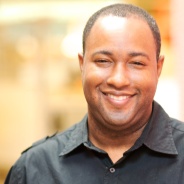
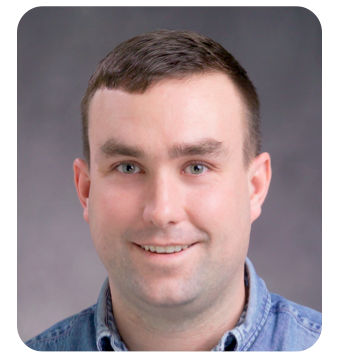
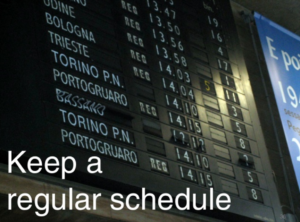
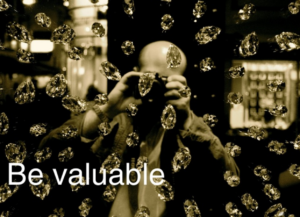 Be Valuable
Be Valuable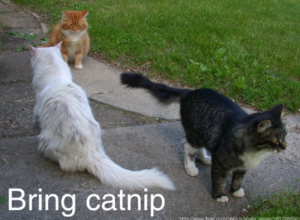 Bring Catnip
Bring Catnip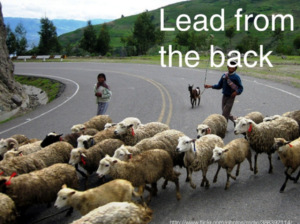 Lead From The Back
Lead From The Back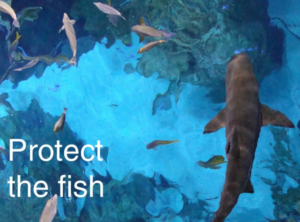 learn where they hang out and how they like to operate. But this is not a one-time only process. You need to do this regularly. Your audience may shift their likes and dislikes and you need to be ready to shift with them.
learn where they hang out and how they like to operate. But this is not a one-time only process. You need to do this regularly. Your audience may shift their likes and dislikes and you need to be ready to shift with them.